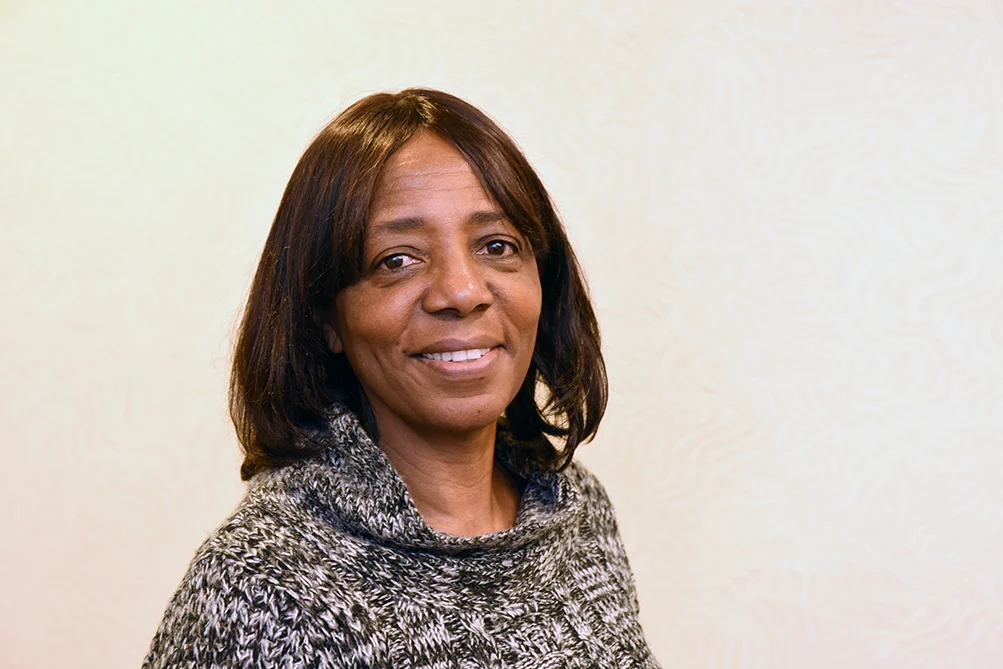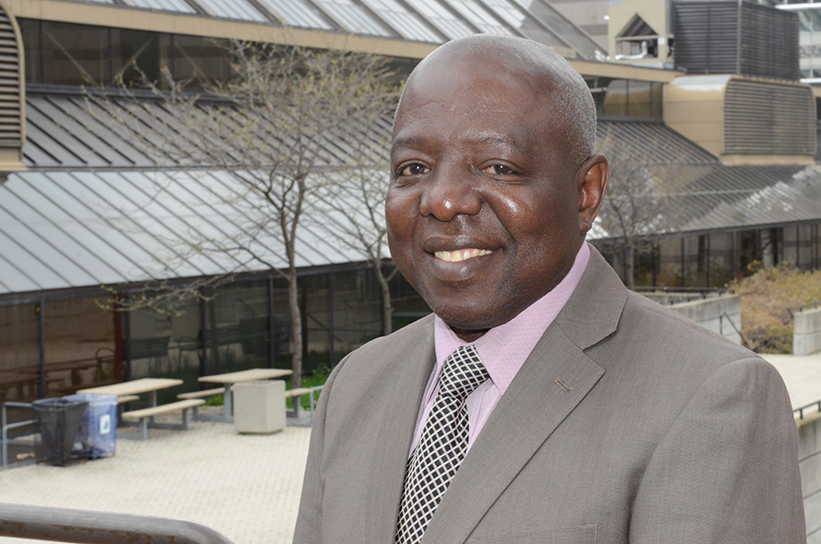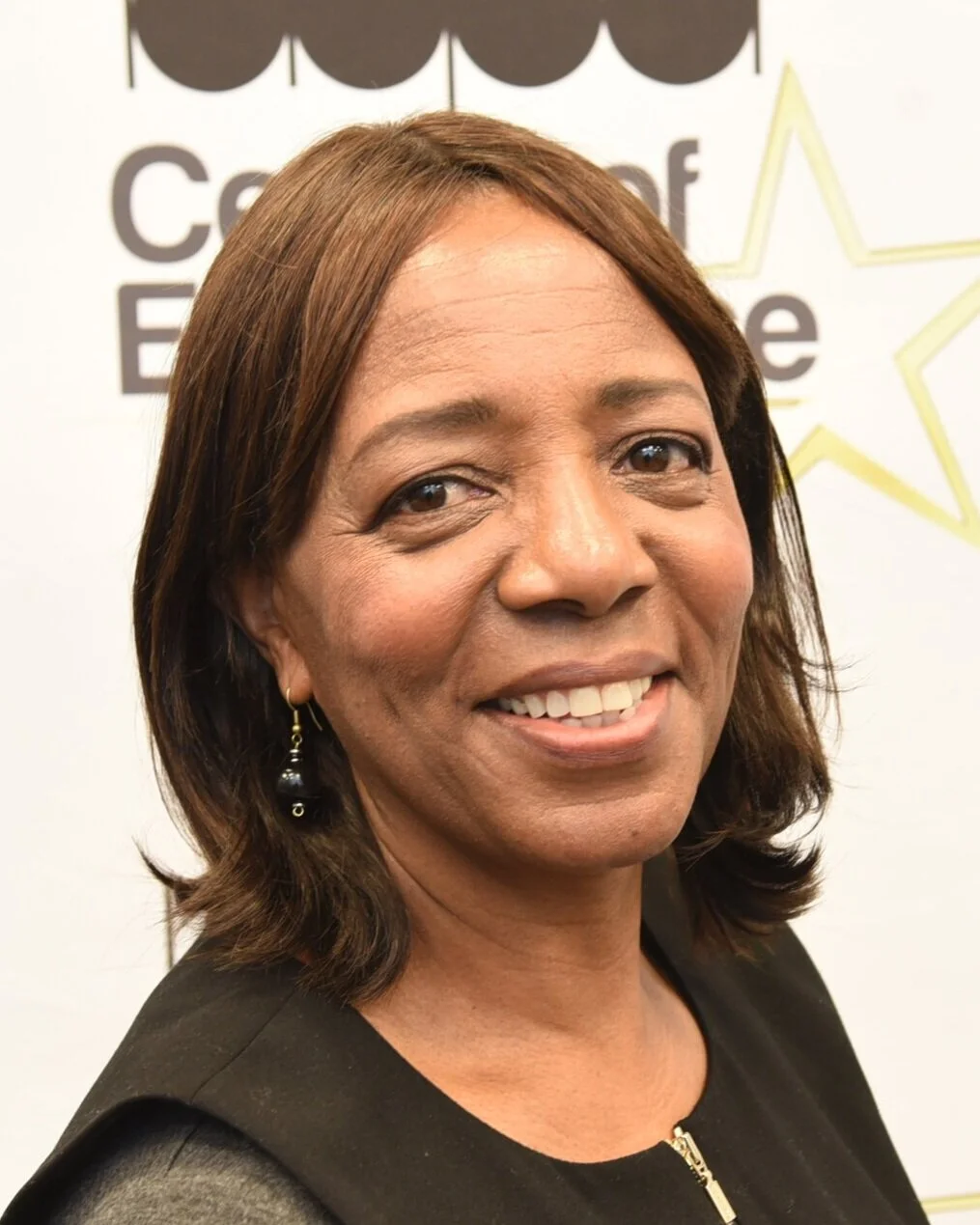Ottawa team building trust between cops and community
February 6, 2017
While investigating a shooting a few years ago at an Ottawa night club, police officers encountered a wall of silence from the mainly Black patrons.
“They just would not speak to us,” recalled Staff Sergeant Isobel Granger who was among the first officers on the scene. “I was the only Black cop there and as we tried to interact with some of the people, a woman pulled me aside and pointed out the alleged shooter who we arrested. The only reason she did that is because I looked like her and she trusted me.”
The issue of public trust and confidence in the nation’s capital police re-ignited last July after Abdirahman Abdi, a 37-year-old Somali-Canadian, died during an altercation with police. The death sparked outrage and led to the activation five months ago of an Outreach Liaison Team (OLT) headed by Granger who was among the first group of five Black female recruits hired in 1994.
Comprising sworn and civilian members, the team was mandated to increase community engagement with racialized and broader diverse communities in an effort to create meaningful dialogue and rebuild the community’s trust and confidence in the Service.
“We were given several roles and responsibilities focussed on our interactions with community members,” Granger said. “These included identifying and engaging community stakeholders and organizations in racialized communities, gauging the pulse of the community so that our Service could appropriately respond to the community concerns and obtaining feedback.”
She said the OLT has already met over 1,000 contacts in the last five months.
“They represent organizations and individuals in Ottawa,” Granger added. “There is a perception in the community of unequal treatment when it comes to Blacks and other racialized communities. Most of the people we have spoken to speak well of the Service, but they also indicate there are certain things that need to be addressed. Our goal is to regain trust and mend the fractured relationship.”
Abdi’s death is still being investigated by the Special Investigations Unit and that process along with last October’s release of the landmark ‘Traffic Stop Race Data Collection Project’ which was part of the settlement in the case of a young black man who was pulled over by police while driving his mother's Mercedes Benz in May 2005 could lead to an extension of the team’s early February deadline.
Granger was in Toronto recently to meet with the executive of the Association of Black Law Enforcers (ABLE).
Launched in 1992, the umbrella Black law enforcement organization encourages racial harmony and cultural pride in the law enforcement community and the wider society, promotes and protects the interests of Blacks and other racial minorities in the profession, works closely with law enforcement agencies to stimulate and facilitate employment equity programs and advocates against racial profiling by police.
ABLE launched a student funding program 23 years ago that has awarded 137 scholarships worth nearly $160,000.
While the OLT was originally mandated to engage with external racialized communities, racialized Ottawa Police officers reached out to the team about their own concerns surrounding diversity, equity and inclusion.
“They told us about their lived experience and some of the barriers they have faced in their law enforcement career,” said Granger. “It was for that reason that I came to meet with ABLE to hear from them what is happening in the Greater Toronto Area and other parts of the province. What I have found is that officers here face the same systemic barriers and a concerted effort needs to be made to create positive change.”
Granger, who renewed her ABLE membership, is a trailblazer in policing in Canada and Zimbabwe, her birth country.
As a 19-year-old, she was the first Black female officer hired by the British South Africa Police (BSAP) in her native Rhodesia which became Zimbabwe in 1980 after Southern Rhodesia secured its independence from Britain.
When she and her family decided to migrate, Canada and Australia were the countries of their choice.
They moved to Ottawa in 1989 because she liked the sound of the name.
“That sounds silly, but that’s exactly how we ended up there,” Granger, who has a Master’s in Leadership and a degree in policing studies, recalled.
Discouraged by her ex-husband from following through on an application to join the Ottawa Police Service in 1991, Granger – who worked as a gas station pump attendant and an IGA store cashier -- re-applied three years later and was hired.
She was among a group of five Black females hired at the same time.
Granger and Jamaican-born Debbie Alexander, who was also in the history-making recruiting class, are the Service’s highest ranking Black female officers.
In the last Ottawa Police Service census five years ago, White officers comprised 85 per cent of the Service while Blacks made up just four per cent.
Last summer, the Service hired 19 officers, one of which was Black.
Somali-Canadian Mohamed Islam, who joined the Service the same day that Abdi was killed, is on Granger’s platoon.
“Mohamed brings a lot of great skills to our organization,” she said. “He’s very plugged in to the community, particularly those with challenges. He will be an asset.”
Two decades ago, Granger encountered a harrowing experience while attempting to make an arrest.
She was stuck with a needle during the apprehension.
“My first thought was, ‘God, I have AIDS’,” Granger – who spent five years with the BSAP and the Zimbabwe Republic Police Service -- recounted at the time.
Her worst fear was realized when doctors related that the needle may have infected her with HIV. She was told that she might not contract the virus if she started AZT (anti-HIV drug) treatment within two hours of being jabbed.
Granger later learned that the robbery suspect refused to take the HIV test and could not be compelled by law to give a blood sample.
The suspect, however, changed his mind and agreed to be tested after another officer offered him a hamburger. He tested negative for HIV, although he was positive for hepatitis C. This was good news for Granger who discontinued taking the drug cocktail that was causing her severe physical harm.
Realizing that she couldn’t compel a suspect to provide a blood sample, Granger lobbied the federal government to enact legislation to support frontline responders. Her efforts led to the introduction of a private member’s bill, C-217, that received two readings in parliament. The Bill called for the taking of blood samples for the benefit of persons administering and enforcing the law and good Samaritans.
In 2001, she was recognized in the House of Commons Hansard 37th parliament sitting for going above and beyond the call of duty.
Granger -- the only Canadian trained to investigate sexual gender-based violence across the world – was deployed to Cambodia for nine months two years ago to assist with investigations into crimes against humanity, war transgressions and genocide committed from 1975 to 1979 during the Khmer Rouge regime.
“I was part of a six-member team from six countries and that was an amazing experience,” she noted. “It was such a diverse team and everybody was different. For two weeks of the month, we went into rural areas to talk to people about the most painful aspects of their lives and their experiences. Those people were so happy that we were there to hear their stories.”
She’s the only Black female Canadian law enforcement officer to be honoured with the Order of Merit of the Police Services presented in 2015.






